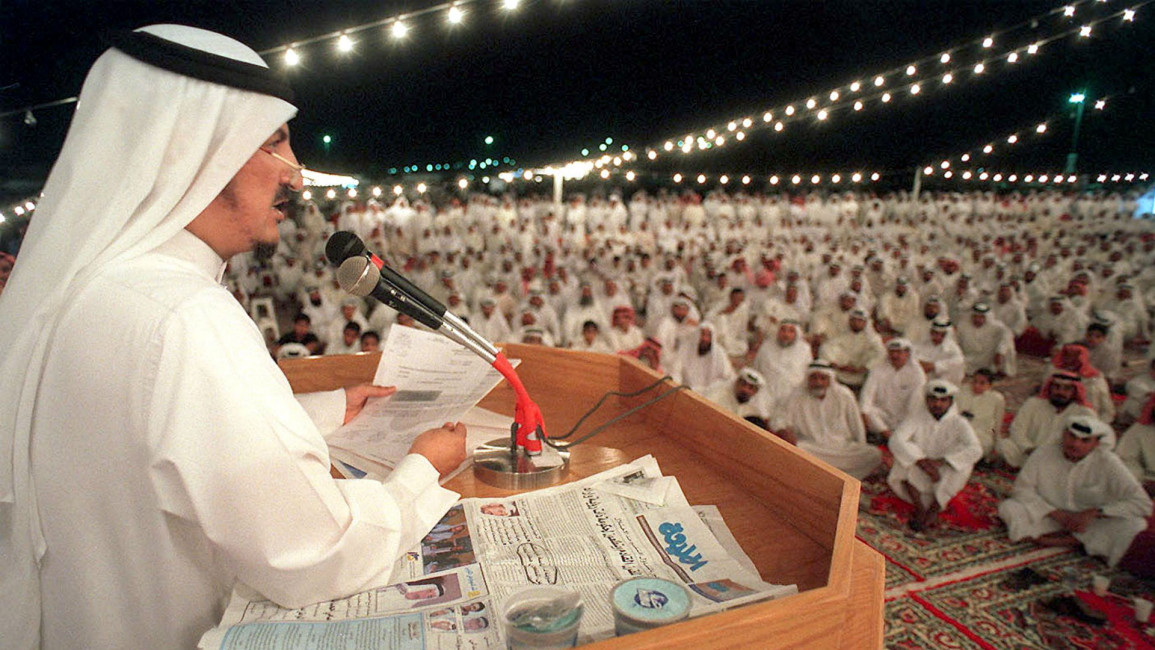Former Kuwaiti MP to be jailed for 'insulting' UAE
A former Kuwaiti member of parliament will be jailed for insulting the UAE during a television interview two years ago.
Mubarak al-Duwaila's appeal was quashed this week by Kuwait's higher court in a ruling over comments he made during a television interview in 2014.
The former lawmaker's "insults" against the UAE had put Kuwait's relations with its Gulf neighbour in jeopardy, judges ruled, as the Court of Appeal quashed an earlier not guilty verdict given by a lower court.
Duwaila reportedly insulted Abu Dhabi's Crown Prince Sheikh Mohammed bin Zayed al-Nahyan during the 2014 interview. He also said that evidence used to prosecute Emirati activists allegedly linked to the Muslim Brotherhood for sedition was false.
This resulted in a UAE court also sentencing Duwaila in absentia to five years in jail.
The former MP is a member of Kuwait's Islamic Constitutional Movement, which is linked to the Muslim Brotherhood.
The UAE has led a clampdown on suspected members of the Islamist movement when activists began to campaign for democratic freedoms in 2011 during the Arab Spring.
This includes members of "the UAE 94", who were sentenced to long jail terms by a secret UAE security court.
Duwaila is not the first MP to be tried under Kuwait's controversial law, which punishes people who make comments that could threaten relations with foreign countries.
Abdul Hamid Dashti was stripped of the diplomatic immunity granted to him as MP this year for repeated insults of Saudi Arabia.
Dashti is a well-known sympathiser of Syria's President Bashar al-Assad, and has accused Saudi Arabia of supporting "terrorism" in Syria, a term used by the Damascus regime for all political opponents. Riyadh has been one of the leading supporters of the Syrian opposition in the country's civil war.
Dashti also attacked Saudi Arabia's military offensive against Shia-Zaydi Houthi rebels in Yemen.
Kuwait is widely viewed as having one of the most "free" political systems is the Gulf region, with an elected parliament that has comparatively wide-reaching powers compared with other GCC states.
Since the Arab Spring began in late 2010, Kuwait has also clamped down on freedom of speech and has used the constitution and security laws to stifle political dissent, reported Human Rights Watch.
Meanwhile, Kuwait's expatriate community has also been targeted by numerous laws which critics say unfairly punish foreigners.
Kuwait lawmakers passed a law on Wednesday raising utility prices for expatriates, while Kuwaiti citizens will be exempt from the rise.



